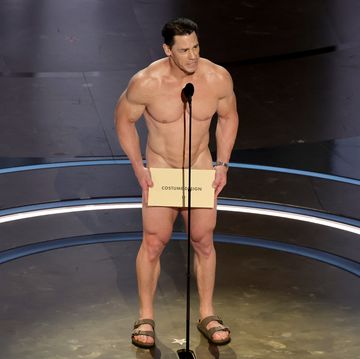Today Deadline reported that screenwriting and directing duo Scott McGehee and David Siegel had closed a deal with Warner to remake GCSE syllabus classic Lord of The Flies. But - a-ha! - unlike in the original, the group who violently turn on each other will be female.
McGehee commented that the pair were "taking the opportunity to tell it in a way it hasn't been told before, with girls rather than boys" because "it shifts things in a way that might help people see the story anew" and "breaks away from some of the conventions, the ways we think of boys and aggression."
The irony of two men taking it upon themselves to mansplain female relationships to the world was lost on, well, nobody actually. Twitter was immediately trending with scepticism towards the idea,while even the books author William Golding had the decency to point out in the 1954 introduction to the novel, regarding the solely male characters, "I have been a brother, a father, I am going to be a grandfather. I have never been a sister, or a mother, or a grandmother"
The decision to gender swap Golding's story is a particularly strange one as some of the overarching themes of the book are what we now call 'toxic masculinity' and power structures that occur within male groups. As feminist writer Roxane Gay plainly noted, "An all women remake of Lord of the Flies makes no sense[...] because the plot of that book wouldn't happen with all women."
'Gender-flipped remakes', as Vanity Fair terms the genre, have been all the rage in recent years with the controversial 'Feminist Ghostbusters' proving a critical hit (but - perhaps tellingly - a commercial flop, losing around $70m). That some people felt offended about Kirsten Wiig et al putting on jumpsuits to vacuum up some ghouls no doubt said more about our outrage culture than it does the film itself, but the need for it to exist in the first place was always questionable.
Meanwhile next year Sandra Bullock, Cate Blanchett, Anne Hathaway and Rihanna will join forces for Oceans Eight, a reboot of the Clooney/Pitt heist franchise and, for the sake of fairness, Channing Tatum will wriggle into a merman tail for the macho remake of Splash.
If you weren't familiar with the dearth of female directors or disparity in male and female pay in Hollywood, you've be forgiven for think we'd conquered sexism with these right-on reboots, but is something more sinister going on?
With 69% of girls identifying as feminist, marketeers are more than aware of the fact that female empowerment is shifting albums, t-shirts and - therefore - cinema tickets. But to my mind dragging up old classics and giving them an all female cast is at best a patronising gesture towards equality and at worst cynical commercialism dressed up as female empowerment.
For all their cheerleading feminist messages, all of the above mentioned reboots have male directors, a fact that can hardly shock given there are 24 of them for every female equivalent.
Erasing men from films does nothing for genuine representation, especially when the strings are all still being pulled by men out of sight. This was one of the reasons Patty Jenkins' recently released Wonder Woman felt so revolutionary and was spectacularly vindicated at the box office.
Speaking at Cannes Film Festival this year, Jessica Chastain commented that she was "disturbed" by "how the world views women from the female characters that were represented."
She added, "I hope when we include female storytellers they will be more like the women I know in my day-to-day life. They are proactive, have their own point of view and don't just react to men around them."
It was also at this year's Cannes - where Sofia Coppola was the first woman to win the Best Director award for 56 years - that Nicole Kidman pledged she would work with a female director every 18 months saying "everybody keeps saying 'oh it's so different now, oh it's so different now', and it isn't."
There may be more reason to be cheerful in the world of the small screen. Although Kidman noted that there had been only 183 directors for 4000 episodic television series last year, a spate of recent shows is cause for some hope. The TV adaptation of Margaret Atwood's dystopian drama The Handmaid's Tale has seen two Emmy nominations for female directors Reed Morano and Kate Dennis. Their talent brought a sense of authority and authenticity when addressing issues like female enslavement and ritualised rape. It has been by some margin the most challenging and rewarding piece of television produced this year.
Similarly the genuinely diverse female characters being explored in Jenji Kohan's Orange Is The New Black and Glow. These shows explore female sexuality, mental health and the experience of imprisonment by men with brilliant results - no male control required.
All of which suggests that women need to be influencing film behind the camera, if we want to see more great art which truly represent women and, in doing so, advance the cause of equality. Then perhaps we can get to a point were male actors aren't having to take a pay cut so their female co-stars don't earn less than them, and female actors aren't off she shelf by 30 and routinely forced to lose weight in the years before that.
Then, maybe, we can talk about a Lord Of The Flies movie.














